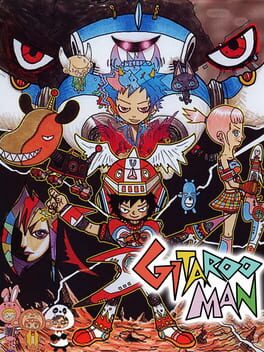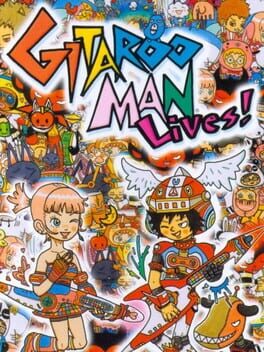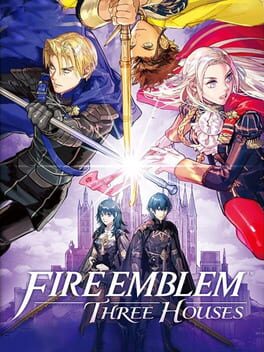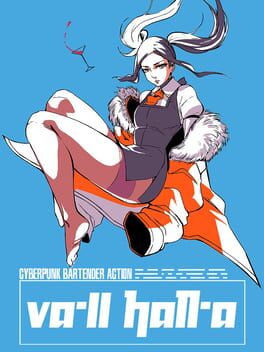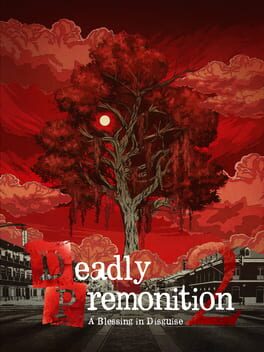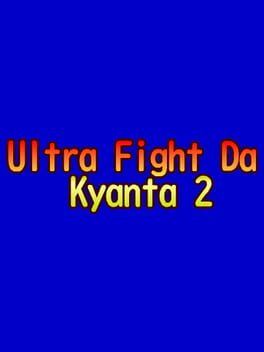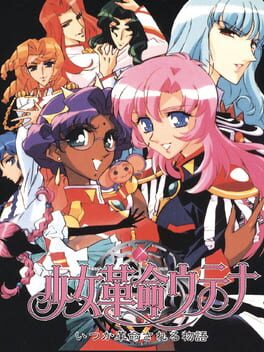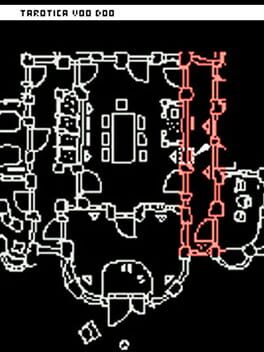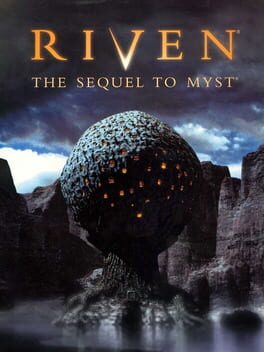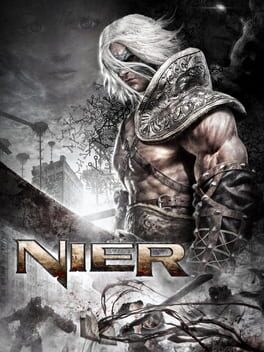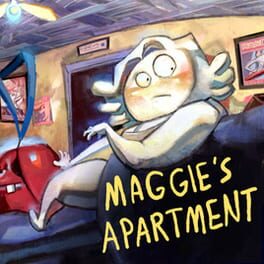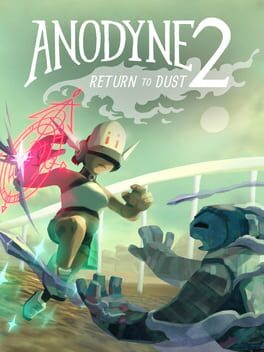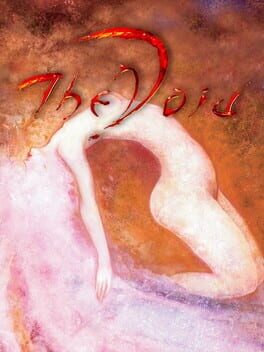ludzu
2001
2006
when taking into account all the flaws and masterstrokes in each game touched by the love-de-lic spirit, their totality making every one of them interesting in their own ways, let it be said that this game is kinda incoherent in how its constituent parts are stitched together. i like chulip more for making the town and its residents the center of the world, and how it feels more grounded of a story. even the ways chulip is a mess are more compelling to me than the ways in which moon is a mess.
that being said, in terms of raw passion of its developers and the heat of the moment in which it was made, moon hasnt been touched. its strange, insular kind of innovation came out of testing the hypothesis that video games must be worth /something/, its developers (a fucking SUPERGROUP of a team) expressing their love for the artform by changing the rules so drastically, to surpass everything holding them back. by changing an RPG into an adventure game, by having the player practice patience with the flow of time to understand others, by having the world's characters all driven by this thematic force that the designers desperately wanted to impart on you as something that must exist both inside AND outside the game, despite what other games in its time would have you believe. its "what if games were nice instead of mean" type message may come off as precious and hokey but i think the history around its development as a console game in 1997, and the genre-ambiguous space it establishes—built on later by other love-de-lic games, chulip, endonesia, nishi-directed games at skip—gives moon this mysterious and captivating aura, as well as a radical sincerity to explore into the core of what games really are and what they could be. the final sequence is incredibly poignant to me with this in mind
basically there is no other game that just...radiates heart as glowingly as moon, you can see it and hear it and read it and feel it. this game is the untold spark of so much, as the root of highly creative game design legacies from the names attached to this project. they can possibly make better games in different settings, but moon only could happen this one time.
that being said, in terms of raw passion of its developers and the heat of the moment in which it was made, moon hasnt been touched. its strange, insular kind of innovation came out of testing the hypothesis that video games must be worth /something/, its developers (a fucking SUPERGROUP of a team) expressing their love for the artform by changing the rules so drastically, to surpass everything holding them back. by changing an RPG into an adventure game, by having the player practice patience with the flow of time to understand others, by having the world's characters all driven by this thematic force that the designers desperately wanted to impart on you as something that must exist both inside AND outside the game, despite what other games in its time would have you believe. its "what if games were nice instead of mean" type message may come off as precious and hokey but i think the history around its development as a console game in 1997, and the genre-ambiguous space it establishes—built on later by other love-de-lic games, chulip, endonesia, nishi-directed games at skip—gives moon this mysterious and captivating aura, as well as a radical sincerity to explore into the core of what games really are and what they could be. the final sequence is incredibly poignant to me with this in mind
basically there is no other game that just...radiates heart as glowingly as moon, you can see it and hear it and read it and feel it. this game is the untold spark of so much, as the root of highly creative game design legacies from the names attached to this project. they can possibly make better games in different settings, but moon only could happen this one time.
the class system is horribly flawed and the academy shit makes me want to tear my hair out bc i hate dating sim-like mechanics but edelgard is a revolutionary in the realest sense. most of the other students are far better characters than 2010's fire emblem games deserve too, the way the sociopolitical world enters their lives in these insidiously interconnected ways just makes el's cause more just. and i enjoy that the protagonist expresses herself only through choices, makes her feel both more like a PLAYER-character and a weird endearing robot woman at once somehow.
This review contains spoilers
for all of the more infamous criticisms abt the game the worst thing for me is how it ends and what it shows about how swery thinks of deadly premonition. was expecting them to actually do /something/ with aisha, i really believe she had unexplored potential as a younger parallel to york that i was hoping, if nothing else, that they'd follow through on it. but they had to play it safe and make only york the one who really mattered at all.
i really couldve been a defender of this game in some sense (if we arent counting that most of the characters feel more like quirky tourist curiosities than people with human relationships to each other, i.e. anna's mother, becky and quint, nick and olivia from the first game) if it didnt feel like it was leading me on to not just seem like....fanfic for york. but as it is, i feel either like they ran out of steam bc of budget/time, or swery doesnt understand that dp was more than just banking on its protagonist, or both.
i really couldve been a defender of this game in some sense (if we arent counting that most of the characters feel more like quirky tourist curiosities than people with human relationships to each other, i.e. anna's mother, becky and quint, nick and olivia from the first game) if it didnt feel like it was leading me on to not just seem like....fanfic for york. but as it is, i feel either like they ran out of steam bc of budget/time, or swery doesnt understand that dp was more than just banking on its protagonist, or both.
2016
my fav of the three ueda has directed so far. all of them are miracles in their own special ways but this is the one i had the strongest emotional connection with. the one where i didn't just simply contend with characters enacting stories about love and how they love but where i myself contended with love, every time i looked into trico's face during some quiet moment. i dont care abt the framerate or annoying tutorial prompts or the camera or occasionally weird puzzle design or whatever. i love you trico
incomprehensibly fast, sfx and voice acting all come from the single devs mouth, everything looks like it was drawn in paint (god's medium), can spam specials every 3 seconds in the games funnest mode, and has the best win screens ive ever seen.
just remember this all you fighter gamers out there...the only """tiers""" that are real...are the ones you shed after the laughs and fun you share....
just remember this all you fighter gamers out there...the only """tiers""" that are real...are the ones you shed after the laughs and fun you share....
more work put into this than i would expect. might be good dumb fun if you consider that this had to have been made by people who saw the first season of the show (setting of this game is somewhere in the middle of that season) and then overheard someone else's vague and confused description of the second one. in fact, that this game misses the point of the series in a much less overwrought way than the movie, and in a more hilarious and not boringly oblivious way than the manga, makes me wonder if its better than both. it actually has nanami in it so that helps
just watch the anime if nothing else because its the best tv ive seen period. a show in which its flamboyant and facetious moments just belie what it is at its heart: a hard look into child abuse's role in the construction of gender and a plea to support those who need it most, to attack the institution at the root. also maybe the only piece of fiction ive found that discusses sibling incest, arguably even centering it, through that lens.
then play this game and date touga!! if you want!!
just watch the anime if nothing else because its the best tv ive seen period. a show in which its flamboyant and facetious moments just belie what it is at its heart: a hard look into child abuse's role in the construction of gender and a plea to support those who need it most, to attack the institution at the root. also maybe the only piece of fiction ive found that discusses sibling incest, arguably even centering it, through that lens.
then play this game and date touga!! if you want!!
2017
msx homebrew available on steam that happens to be the most compelling thing released in 2017 in my book. tarotica goes far beyond any pidgeonholing as retro hobbyist software or whatever in how it pushes the technical limitations of its hardware in service of playing like nothing else on the system. or honestly, any other game ever.
everything about it sings to me: its cute flipbook animations that make the world feel so direct and tactile, its use of a cursor on a world map for both hotspots and to convey a kind of character movement, its rhythmic block and attack combat sequences. it has almost none of the thick layers of abstract mechanics youd find in dungeon crawlers, but it conjures this primordial idea of "pc dungeon crawling" through the arcaneness of its experience. not in the sense of it being overwhelming to get a grasp on, but that it feels strange and rough-edged and ancient, despite being technically contemporary.
theres a few weird puzzles, like one where you hit a switch for something to happen in a completely different room (check the mannequin room again) or the translation sometimes being too vague ("keep close" is better phrased as "keep doors closed"). other than that i would not change anything. i think about this game's design quirks CONSTANTLY, the dream of making something outside any expectation for how it should play.
everything about it sings to me: its cute flipbook animations that make the world feel so direct and tactile, its use of a cursor on a world map for both hotspots and to convey a kind of character movement, its rhythmic block and attack combat sequences. it has almost none of the thick layers of abstract mechanics youd find in dungeon crawlers, but it conjures this primordial idea of "pc dungeon crawling" through the arcaneness of its experience. not in the sense of it being overwhelming to get a grasp on, but that it feels strange and rough-edged and ancient, despite being technically contemporary.
theres a few weird puzzles, like one where you hit a switch for something to happen in a completely different room (check the mannequin room again) or the translation sometimes being too vague ("keep close" is better phrased as "keep doors closed"). other than that i would not change anything. i think about this game's design quirks CONSTANTLY, the dream of making something outside any expectation for how it should play.
much more different than the original in its intentions than its given credit for, though to me its clear that riven is far more matured and ambitious than any myst game. in fact, the moments it relies too much on referencing myst and the book of atrus are actually parts of the game i dislike. because much of how riven itself works, as a place where people exist and do things, becomes so important for the player in a utilitarian gameplay sense that it makes some of the extraneous story stuff, having to do with places that /arent/ riven, feel tacked on by comparison.
riven is a tale of obsession and imperialism, a world suspended in an anxious ceasefire as its imminent death hangs over. this is communicated not so much through logic puzzles to solve, but from moving through spaces and interacting with machines and observing details. the key to progress in riven is, ironically, understanding that people in riven have interpretations of these details and reasons for these spaces and uses for these machines outside of progressing in a video game. THEN, through understanding this, is your knowledge tested, and even these couple of logic puzzles are brilliantly framed; one of culture and guerilla warfare, the other of tyrannical power and ecological crisis, dialectically opposed to each other. its pretty common to have """environmental storytelling""" games set after some big crisis or eerie abandonment of its world, but few if any have ever struck sharply into the blood of implicit conflict like this game does.
this alone makes riven great, but experiencing it comes with very interesting questions that im not sure i know how to fully answer yet: if riven is a place with history and people, why does it feel so deserted most of the time? why does the ~immersion~ they were going for with the admittedly remarkably well-aged CG visuals feel almost intentionally undercut by huge striking symbols that inexplicably dot the landscape? why does this anthropological bent of the game essentially only go so far as framing the information necessary for logic puzzle solutions as culturally significant onto itself, as if someone took the hitchhiker's guide to the galaxy's answer to the question of the meaning of life, "42", as deep enough on its own? why does this game about seeing things from other's perspectives ultimately take the form of a puzzle game with correct answers?
honestly these questions make me believe riven harnesses the uncanny valley more enchantingly than any game ive played. myst was an amusement park mish-mash of pre-rendered aesthetics that tries to be "real", but felt too comically at home in the 90s (the 50s cartoon rocketship next to the columnated greco-roman building for example), but riven's elements that would arguably break its "even realer" versimilitude instead give it a more geniunely alien atmosphere. things left unsaid, like how lonesome this populated place feels, and the massive weapons littered around, and that one element of this game that always reoccurs but is only profound /because/ it reoccurs, get the imagination going when not expounded upon. its a game in which its lore is actually important for gameplay, yet the lore only goes so far as that much of the time, putting its gameyness starkly at odds with its realism in interesting ways.
i think there is even a beautiful meta-narrative layer to this with gehn's inability to understand how his own works reflect himself in their instability, constantly unnatural out of his staunch belief in "a natural order of things". the idea of being immersed into a strange world that cyan always tries was executed in riven with an almost unsettling self-awareness of the limits of making a virtual world that cannot truly feel alive. whether intentionally or unintentionally, i think riven best reflects both the fallacy of trying to make games real and the tendency to make them unreal, and the tension of those contradictory forces existing in the same instance becomes so alluring to me. a game of conflicts through and through
riven is a tale of obsession and imperialism, a world suspended in an anxious ceasefire as its imminent death hangs over. this is communicated not so much through logic puzzles to solve, but from moving through spaces and interacting with machines and observing details. the key to progress in riven is, ironically, understanding that people in riven have interpretations of these details and reasons for these spaces and uses for these machines outside of progressing in a video game. THEN, through understanding this, is your knowledge tested, and even these couple of logic puzzles are brilliantly framed; one of culture and guerilla warfare, the other of tyrannical power and ecological crisis, dialectically opposed to each other. its pretty common to have """environmental storytelling""" games set after some big crisis or eerie abandonment of its world, but few if any have ever struck sharply into the blood of implicit conflict like this game does.
this alone makes riven great, but experiencing it comes with very interesting questions that im not sure i know how to fully answer yet: if riven is a place with history and people, why does it feel so deserted most of the time? why does the ~immersion~ they were going for with the admittedly remarkably well-aged CG visuals feel almost intentionally undercut by huge striking symbols that inexplicably dot the landscape? why does this anthropological bent of the game essentially only go so far as framing the information necessary for logic puzzle solutions as culturally significant onto itself, as if someone took the hitchhiker's guide to the galaxy's answer to the question of the meaning of life, "42", as deep enough on its own? why does this game about seeing things from other's perspectives ultimately take the form of a puzzle game with correct answers?
honestly these questions make me believe riven harnesses the uncanny valley more enchantingly than any game ive played. myst was an amusement park mish-mash of pre-rendered aesthetics that tries to be "real", but felt too comically at home in the 90s (the 50s cartoon rocketship next to the columnated greco-roman building for example), but riven's elements that would arguably break its "even realer" versimilitude instead give it a more geniunely alien atmosphere. things left unsaid, like how lonesome this populated place feels, and the massive weapons littered around, and that one element of this game that always reoccurs but is only profound /because/ it reoccurs, get the imagination going when not expounded upon. its a game in which its lore is actually important for gameplay, yet the lore only goes so far as that much of the time, putting its gameyness starkly at odds with its realism in interesting ways.
i think there is even a beautiful meta-narrative layer to this with gehn's inability to understand how his own works reflect himself in their instability, constantly unnatural out of his staunch belief in "a natural order of things". the idea of being immersed into a strange world that cyan always tries was executed in riven with an almost unsettling self-awareness of the limits of making a virtual world that cannot truly feel alive. whether intentionally or unintentionally, i think riven best reflects both the fallacy of trying to make games real and the tendency to make them unreal, and the tension of those contradictory forces existing in the same instance becomes so alluring to me. a game of conflicts through and through
2010
the party in this one definitely makes it my fav in the taroverse so far (havent played drak 3 yet). also hoping someone else had an "ah i see" moment when shades were crowding on those planks in the aerie, lining up to die to your hitting attack over and over and over and over and over. automata should have been less fun actually
2017
extremely interesting take on point and click, KIND OF in a Classics of Adventure Gaming way (though you can sure get stuck a couple times like those games, n you arent told that you drag items onscreen onto things to use them on those things) but also in the elementary school computer lab-core cd-rom edutainment way imo. that comes from the general whimsical tone and charmingly specific kind of choppy and loosey-goosey cartoon animation it has, sure, but there is even a scene near the endgame feels like its utilizing a "can you tell me which goes in what order? lets find out!" puzzle for young children towards a much more subversive purpose. dont know how to talk more about it without saying too much, other than that this is a story about the dangers of identifying too closely with fandom and the object of fandom, and the game communicates this in very novel, considered ways. i think the whimsy is put on a little too much at some points to really hit emotionally, but this game is still really endearing to me as coming from a place of being too trusting when i was young and navigating online spaces, without it obviously being about that.
as heavy as im making it sound the game is pretty cute too. love the weird (somewhat cynical but not overbearingly so) city-slicker personalities maggie talks to through the walls/floor/ceiling, and the diegetic, jonathan richman-esque tunes coming from the AM radio. anatola howard please come back to video games
as heavy as im making it sound the game is pretty cute too. love the weird (somewhat cynical but not overbearingly so) city-slicker personalities maggie talks to through the walls/floor/ceiling, and the diegetic, jonathan richman-esque tunes coming from the AM radio. anatola howard please come back to video games
some of the writing especially early on comes off as overly twee earthbound-derivative shit a la undertale BUT the third act goes into some really surprising places, with some memorable sequences that explore when one becomes uncertain of who they are. and then its "figured out" nice and neat by the ending, which wants to feel revelatory but just comes off as whatever to me. im hesitant to say the game is not worth playing at all, but i wish its cooler aspects werent layered under gameplay and storytelling sensibilities that are the essence of "quirky yet largely unchallenging", becoming too comfortable with predictability in its conclusion when its much more compelling at doing the opposite.
e: kinda want to keep this review mostly intact to give credit to my disappointment with the game, but now i feel like i shouldve turned down the vitriol a bit, so ill elaborate and chill a little. if you asked me whether i liked or disliked the game, no in between, id probably just barely say i liked it, bc the highs, the parts of the game that feel outside the scope of the main story but arent, are SO high. the writing just annoys me w its preciousness often, and i feel like the conclusion of the game rides too hard on that writing being better than it actually is once you center back onto the main story. i know its part of the charm of its influences as being awkwardly written yet evocative nonetheless, but in this case i was left wanting by this game's central argument. idk. maybe could use a replay but im not confident my opinion will change
e: kinda want to keep this review mostly intact to give credit to my disappointment with the game, but now i feel like i shouldve turned down the vitriol a bit, so ill elaborate and chill a little. if you asked me whether i liked or disliked the game, no in between, id probably just barely say i liked it, bc the highs, the parts of the game that feel outside the scope of the main story but arent, are SO high. the writing just annoys me w its preciousness often, and i feel like the conclusion of the game rides too hard on that writing being better than it actually is once you center back onto the main story. i know its part of the charm of its influences as being awkwardly written yet evocative nonetheless, but in this case i was left wanting by this game's central argument. idk. maybe could use a replay but im not confident my opinion will change
2008
